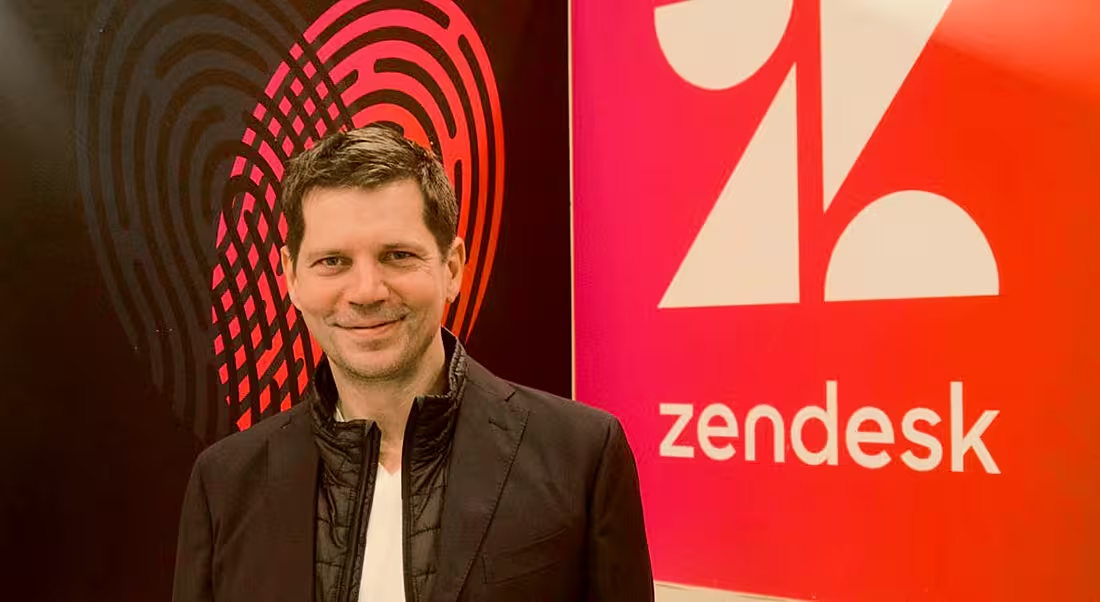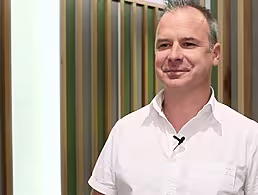The secret to success in the fast-paced and competitive world of tech is actually uncomplicated and rooted in core human values, according to Zendesk co-founder and tech mogul Morten Primdahl.
Those who grow the buds of their ideas into rich and thriving businesses often attain mythical status. When King Arthur was able to pull Excalibur from the stone when no one else could, people clamoured around to know how he did it.
In the same fashion, bright-eyed entrepreneurs no doubt hung around Zendesk co-founder Morten Primdahl, like moths throwing their fragile bodies against a bright lamp, when he met with new start-ups to mete out pearls of tech wisdom while touring Dublin recently for SaaStock.
If you’re looking to emulate a success story, Primdahl’s is an excellent one to model.
The Zendesk story begins in 2003 when Primdahl, along with fellow co-founder Mikkel Svane, was selling enterprise helpdesk systems to large companies. Typical for the beginnings of these sagas of business success, the turning point came when Primdahl and Svane recognised a problem – one they thought they could solve.
“We recognised that the products were not very good, they were not built for consumers and the sales model was very clunky … it was very heavy-handed, very expensive. We figured out we could build something that was very elegant and beautiful, something that would work for SMEs.”
They started building the product in 2005 after teaming up with Alex Aghassipour, and two years later Zendesk was live. With the help of insightful customer feedback and a meaty windfall from a large investor, Zendesk jumped across the pond to the US and kicked off its world takeover.
Amid all this, the biggest challenge that Primdahl says he has faced is managing challenges themselves. “You live in a world where all you see is problems. If you solve one problem, two more appear. Sometimes it’s hard to pull yourself out of that, to keep perspective and ensure you’re on the right path, but also to celebrate success. When all you see is problems, it can be hard to feel successful.”
Your people are your future
As a business leader, Primdahl stresses that the most important element of your organisation, both now and today, is the people within it. “Good people are increasingly hard to find. [Zendesk has] found a lot of good people over the years and we want to make sure they feel appreciated for their efforts. You [need] to give [employees] meaningful work and create a culture they can identify themselves in – a good culture with good human values.
Primdahl says that at Zendesk, there are “core values” that every employee strives to live by, such as being empathetic and focusing on human connection. Primdahl also encourages his employees to be ‘humblident’”, a portmanteau of humble and confident. These are two traits that Primdahl argues need not be mutually exclusive.
Embodying such traits is only going to get more important with time, especially in a working world that is in a constant state of flux. Primdahl rightly points out that emerging technologies are mushrooming up at a rapid pace and transforming the tech industry landscape just as quickly. “Just think of what has happened over the last few years – SaaS, the iPhone, social media – all that stuff has dramatically changed how we work and interact. The change is not slowing down, so we need a workforce that has a flexible mindset.”
In this brave new world, the value of ‘hard skills’ is slipping away, and ‘soft skills’, Primdahl explains, are becoming more attractive to employers. Employees need to accept that the education they get today may be of little use to them in 10 years’ time, and must be ready to upskill and retrain accordingly. Primdahl is quick to add, however, that this is all easier said than done. “Change is hard … but having said that, the only constant is change.”
Is your phone ruining your life?
As anyone may expect, the productivity tips of busy business leaders are a hot commodity. A strange competitiveness has overtaken much of the discussion about how CEOs and founders spend their time, spawning tales of punishing schedules bookended by only four hours of sleep a night – an amount that is at the very least medically unadvised. Primdahl doesn’t delve into his schedule but has cracked down on an insidious and intense potential productivity drain: the constant beeping of his phone.
“I don’t get notifications on my phone … I don’t get email pushes. I’ve disabled all that so that when I’m ready to read email, I read email. I don’t let that drive my attention, because we get distracted all that time by these beeping sounds and things that pop up on our screen. Each distraction costs us our concentration.”
Be adventurous
Much of Primdahl’s advice is characterised by the same simplicity that his company strives to bring to the world of customer support. You don’t need to hop on the latest trends or carefully measure how you distribute your time and effort when first embarking into the world of work – really, you should just be adventurous.
“You should find companies that will let you grow, where you can see yourself having a meaningful career.
“I think when people leave university, they vastly underestimate themselves and their capabilities. They should strive to find a place where they can be creative and be part of the solution … not just being told what to do.”




